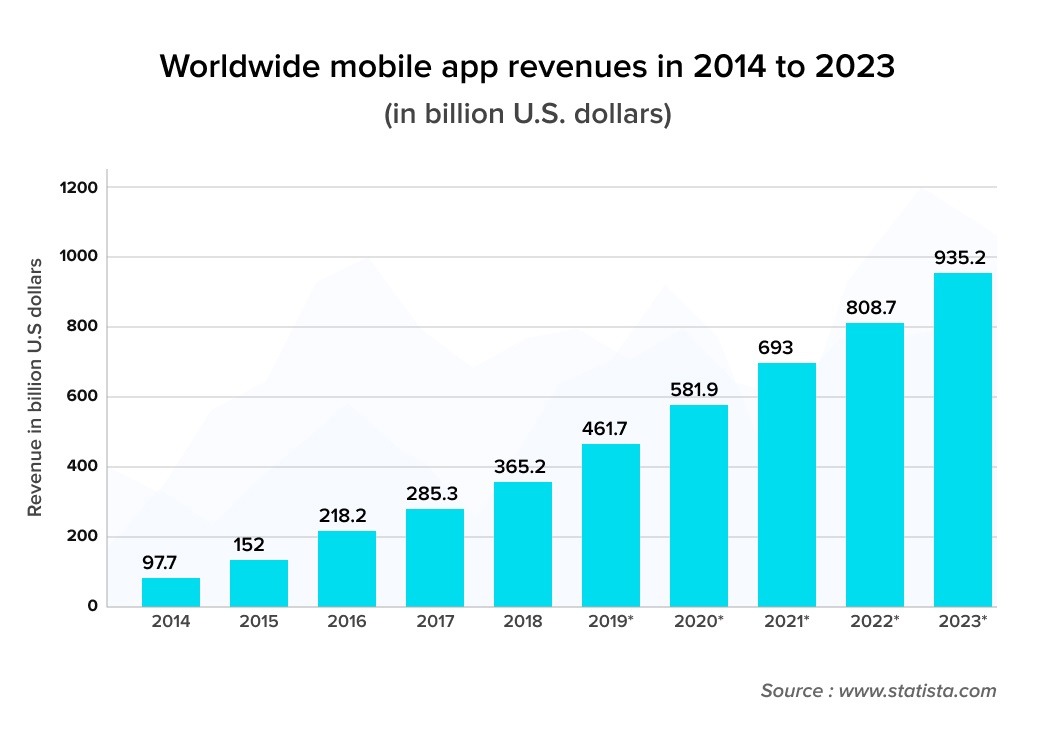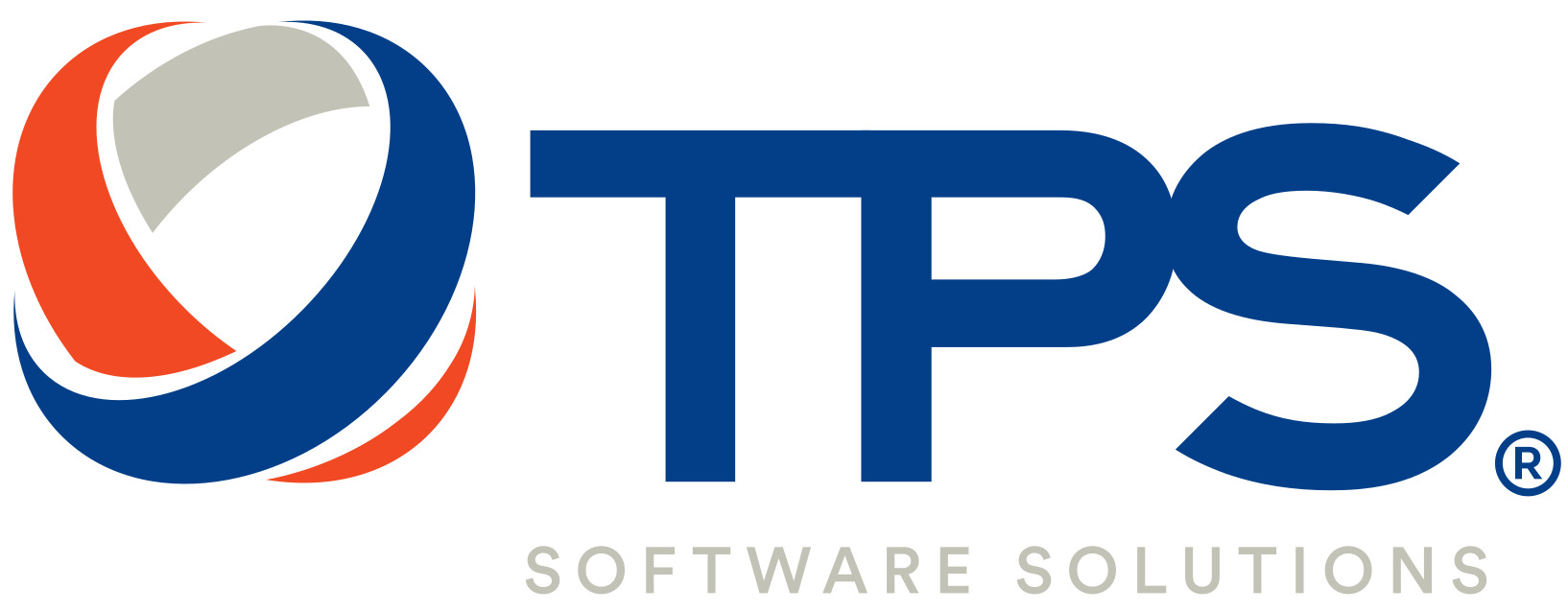Ever since the launch of the smartphone in 2007, mobile phones have overshadowed nearly every other device by a considerable margin. It is estimated that by 2022, the number of mobile phone users will cross 5 billion. This staggering number is very close to the total population of humans on earth. With such a large user base, it is only natural that every company that is trying to engage its customer base must have a mobile app. Nearly every aspect of our lives including education, communication, travel, healthcare has been digitized in some way or the other. In 2018, global mobile app revenues amounted to over 365 billion U.S. dollars. In 2023, mobile apps are projected to generate more than 935 billion U.S. dollars in revenues via paid downloads and in-app advertising.

In this article, let’s discuss how to have a successful mobile app development.
What to consider before having a mobile app development?
1. Identify the target customers
Whenever you figure out the idea for your mobile app development, discover your target customers, detect their needs, their behaviors. Your ability to listen to your prospective customers and understand their needs will make it more likely your solution will satisfy your customers’ needs. Remember that your customers will be the ones using your mobile app and will be responsible for its ratings and will ultimately decide its success/failure in the heavily crowded mobile app market.
The more you understand your target users, the more likely your solutions will be excelling your competition.
2. Identify competitions
Before you build, understand your competition. If you are developing just another alternative to existing ones without any differentiators, it will be more challenging to win the market. Knowing what your competitors offer across platforms is as essential as building the product itself.
An ideal approach would be to address the problem statement in a simple- yet innovative fashion. This will ensure that people understand that you think out of the box and are willing to offer a solution that works the way more sufficient.
3. Validate your product
Creating a test group for your app and including key stakeholders in that group can go a long way in ensuring that your mobile app will do what it needs to do. It is important to understand that every user has specific problems and specific needs. This test user group can provide valuable information that goes far beyond your existing knowledge base during the discovery phase.
4. Identify goals and objectives
Understanding your goals and objectives is extremely important. A mobile app creation team that understands their situation in the mobile app world will always create solutions that succeed.
Whether you are to become a disruptor, an innovator, or an existing behemoth that fends off competition by showcasing progress in a field they already are leaders in, your preview of the roadmap for your app can go a long way in ensuring success in the long term.
Another important aspect is to prioritize these goals so that you know exactly where to begin. Whether that goal is to create a new revenue stream or to enhance customer experience, your goals must be aligned and prioritized well so that you can deliver what you promise.
5. Creating a minimally viable product
Spending too much time developing an app in its entirety can take a long time. This delay can cause businesses to lose customers as the interest in the app wanes. At the same time, businesses can lose focus themselves, getting lost in the development process.
A minimally viable product is a great way to ensure that you tackle the most crucial part of the problem first, and not the whole problem in one go. Using a basic, but a well functional app can accelerate your product to enter the market.
As most mobile app platforms offer upgrade paths that are near-seamless, you can offer multiple releases that give newer features to users on a regular basis. This will help maintain user interest in your app and create a community of loyal users that also function as your initial suggestion for improvement bank.
6. Analyze
Analyzing the performance of your app is substantial, but it is often difficult to define and measure. With dozens of yardsticks to measure your app’s performance with, a good starting point could be queries that analyze the app’s transaction volume, cost-effectiveness, easy integration with platforms, user base and acceptance, brand perception, and increased customer retention.
These queries can be a good head start towards analyzing how your app performs and how it ranks up with the competition.
Although all this information may seem daunting and a little too much at this stage, do not worry! The most difficult part about developing a mobile app is actually beginning the development process. Once you start and ensure that you follow the instructions in our guide, everything should ideally fall into place.
Which model to choose?!
In-house Mobile App Development
Many companies that are pursuing building in-house mobile apps believe that it is savvier and more controlled. Because the in-house team is fully managed, the company can proactively govern the development process. This option might seem to work for a few companies but hinder the others. So let’s get a deep insight on its pros and cons:
Pros of In-house Mobile App Development
Large companies are often willing to establish the required resources for an in-house team, including allocating sufficient time and money. The principal benefits of building an in-house app are:
- Your in-house team has better access and insight into the evolving goals of your business, target audience, and market competition. Thus, an in-house team is able to build a better perspective that reflects while developing a business-driven app.
- Since the mobile application development team works out of the same office space, accessibility is not an issue. You can communicate closely and on a daily basis to check if everything is on track. You can meet them in person very frequently and discuss the challenges face-to-face. It is easy to manage and execute the plans or changes because the whole team is available under one roof.
- As a business owner, you are able to identify the specific expertise of your resources. This way, you can allocate the tasks to drive the best results by utilizing their skills and talent, efforts, and investment. Businesses can replace teams, or have team members swapped if needed to make the process more efficient.
- When deciding between in-house vs outsourcing, your app’s entire development process takes place in front of you in the case of an internal team. This guarantees that the process is going on time as per the business prerequisites without compromising quality. You can control and ensure that the app is built at the specified time and cost.
Cons of In-house Mobile App Development
If you are keen on in-house app development and feel that it can work for your business, you must be aware of the following disadvantages:
- When you build an app in-house, the process is likely to involve high costs. These are mainly directed towards recruiting & training the staff, the licenses as well as infrastructure which eventually become permanent expenses for the business.
- The higher the number of employees, the more significant is the demand for staffing and other resources. However, the bigger challenge is ensuring the retention of the entire team to avoid delay in the development. Moreover, once the project is over, it can be difficult to find the team relevant work within your organization.
- A good app development team consists of various professionals – designers, developers, analysts, quality assurance engineers, project managers, and team leads. To hire the right talent, you will need to invest a lot of time to interact with them and ensure that everyone is on the same track for building an engaging app. The human recruitment process demands a significant amount of your time and effort even before the work actually begins.
Outsourcing Mobile App Development
Outsourcing of mobile app development has seen a sharp rise over the last few years. While the main reason for this has been attributed to the significant reductions in outsourcing app development costs, it is also the access to the top talent pools from around the world and their expertise. It is no more ideal only for startups as many mid-size, and big enterprises prefer outsourcing their mobile app development.
Pros of Outsourcing Mobile App Development
Outsourcing mobile app development helps build a superior app or product without having to spend much time and money. Here are a few key advantages to outsourcing app development.
- One of the prominent advantages is that outsourcing ensures faster time-to-market since the team you hire can start working on the project right away as against building and training internal teams. Moreover, you have extensive options for companies and talent to choose from. Several web portals list mobile app development companies with various skillsets, locations, experiences, and costs. You can scrutinize them as per the business requirement to find the most suitable mobile app partner.
- When you outsource app development, you don’t have to worry about obtaining any certificates or incurring expenses on the office setup, maintaining full-time employees, or other infrastructure. It’s the responsibility of your partner development company to take care of these specifications and manage other challenges to come up with the ideal solutions.
- When you collaborate with an organization to build your mobile app, you are primarily partnering with experts who are skilled and experienced in the field. Hence, with outsourced development, you can leave it to the professionals and focus your resources and time on managing several other associated tasks of your business, such as marketing and sales, without bothering about the minute details of the app-building process.
- Outsourcing app development is completely different from in-house development in terms of the risk involved. If there are significant changes in the app along the way, teams can be readily scaled up or down to manage the requirements, which is not a possibility in the case of an in-house team where hiring and firing can severely affect the project. Additionally, when you hire experienced app developers, they are more aware and abreast of the latest market trends and technologies and can adapt them well in your app.
- The outsourcing partners are experienced in working on different applications across several sectors. This implies the presence of well-defined processes and workflows that lead to better productivity and quality of the mobile app. Also, a mobile app development agency comprises a full team right from Project managers to UX designers for a comprehensive approach to the process.
Cons of Outsourcing Mobile App Development
Outsourcing mobile app development offers great opportunities to those companies who want to aim for faster business growth without having to go through elaborate groundwork. Mobile app development firms offer end-to-end services; however, there are a few drawbacks to outsourcing app development.
- If you and your development team are located in different time zones, you may face communication problems. Nevertheless, this disadvantage is less likely to occur in the case of top app development companies, which adjust their schedule as per the client’s convenience and consistently stay in touch during the entire development process.
- The quality of the product can be one reason to make you feel stressed as the development isn’t done under your nose. Fortunately, a vast majority of mobile app development companies work with Agile methodology, where the entire project is divided into various modules, which are freely coded, tested, and then sent to the client. This certifies the quality as well as the time and cost of app development. You can suggest changes and get them easily executed as the project progresses.
- Enterprises are often worried about the possibility of leakage of confidential information when they hire an agency for mobile app development. The developers/partners require access to several details of the business to successfully build the app which could include the customer database and other sensitive information. Such likelihoods can be avoided by hiring a well-reputed organization as well as IP protection and nondisclosure agreement supported by strong legal measures.
For more insights on outsourcing app development, read the article: Software Development Outsourcing: A complete guide
Where to find these individuals or companies to outsource mobile software development?
There are many platforms and websites online where you can pick a development company or a freelancer according to your needs. Platforms like Clutch, Goodfirms, Upwork, Dribble, or Freelancer can help you get individuals and companies that are specialized in catering to your specific requirements.
The eventual decision on in-house vs outsourcing the mobile app development depends on a combination of factors including the time to market, costs, and your willingness to take the risk. The choice to build the mobile app in-house or through collaboration depends on an organization’s long-term strategy, access to resources, and several other factors. The above-mentioned points throw light on the advantages and disadvantages of both the approaches that can help a business decide better on what benefits their end goals. The decision to in-house or outsource mobile development, after all, is an essential determinant of the success of an enterprise.
Source: Volume Tree, Net Solutions
————————————————————————————————————-
We hope our sharing on mobile app development above may help you gain an overview and assist you to start planning for successful mobile application development.
May you have any questions or concerns about mobile app development, we may provide you with a more detailed consultation. Don’t hesitate to contact us and accelerate your development process.
TPS Software is led by a top management team with 20 years of experience in this industry and owns an in-house R&D team. This allows the company to be able to offer the most appropriate solutions with the good concern of the latest technology in the market to our partners
Trust is always our first priority, have your digital project outsourced with TPS to gain the commitment for your successful software project.













